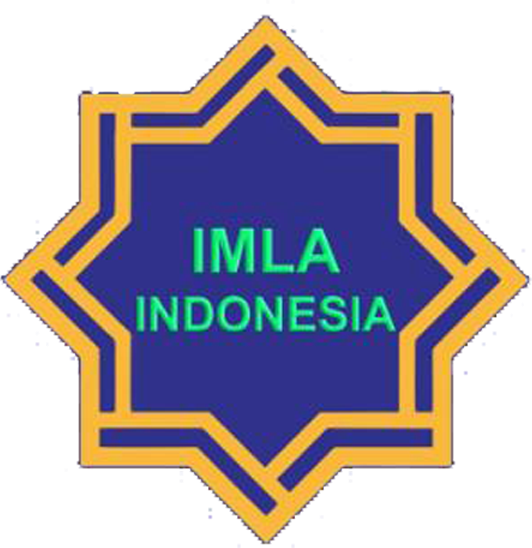Leaning Arabic using Google Classroom/ تعلم اللغة العربية بوسيلة جوجل كلاسروم
Abstract
This research aims to: (1) know the university’s learning via the Internet in the Department of Language Education in Indonesia using Google Classroom, and (2) describe the advantages and disadvantages of teaching Arabic using Google Classroom. Therefore, the researcher used a descriptive study in this study. And the data sources for this research are corresponding. The researcher analyzed the data using a qualitative description. The researcher focused this research on teaching Arabic using Google Classroom at a university in Indonesia. The results of this research are: (1) University learning via the Internet in the Department of Language Education in Indonesia by Google Classroom. (2) Advantages and disadvantages of teaching Arabic using Google Classroom. Therefore, the researcher used a descriptive study in this study.
يهدف هذا البحث إلى : (١) معرفة تعلم الجامعي عبر الإنترنيت في قسم تعليم اللغة في إندونيسيا بوسيلة جوجل كلاسوروم و(٢) وصف المزايا والعيوب من تدريس اللغة العربية بوسيلة جوجل كلاسروم. لذلك تم استخدامت الباحثة دراسة وصفية في هذه الدراسة. ومصادر البيانات في هذ البحث المقابلة. وحللت الباحثة البيانات باستخدام الوصف النوعي. ركزت الباحثة هذا البحث في تدريس اللغة العربية بوسيلة جوجل كلاسروم بجامعة في إندونيسيا. ونتائج هذا البحث هي : (١) تعلم الجامعي عبر الإنترنيت في قسم تعليم اللغة في إندونيسيا بوسيلة جوجل كلاسوروم. (٢) المزايا والعيوب من تدريس اللغة العربية بوسيلة جوجل كلاسروم. لذلك تم استخدامت الباحثة دراسة وصفية في هذه الدراسة.
Keywords
Full Text:
PDF (العربية)References
Anshor, M. K. R. (2015). Tadris Maharah al-Kalam Bistikhdami al-Bithaqah li Thalabah al-Mustawah al-Tsalist fi Qismi Ta’lim al-Lughah al-Arabiyah bi Jamiah Antasari al-Islamiyah al-Hukumiyah Banjarmasin Tahun Ajaran 2014/2015. IMLA.
Arribathi, A. H., Suwarto, Rosyad, A. M., Budiarto, M., Supriyanti, D. & Mulyati. (2021). An Analysis of Student Learning Anxiety During the COVID-19 Pandemic: A Study in Higher Education. The Journal of Continuing Higher Education.
Balance, D. (2020). E Plurising Unum: Using Google Classroom to Bring Together a Statewide Student and Faculty Cohort. Journal of Hospital Librarianship, 20, 166-171.
Carrillo, C. & Flores, M. A. (2020). The COVID-19 and teacher education: a literature review of online teaching and learning practices. European Journal of Teacher Education, 43, 446-487.
Day, T., Chang, I. C., Chung, C. K. L., Doolittle, W. E., Housel, J. & McDaniel, P. N. (2020). The Immediate Impact of COVID-19 on Postsecondary Teaching and Learning. The Professional Geographer, 73, 1-13.
Dewi, W. A. F. (2020). Dampak Covid-19 terhadap Implementasi Pembelajaran Daring di Sekolah Dasar. Edukatif Jurnal Ilmu Pendidikan, 2, 57.
Faisal, Sanafiah. ( 2001). Format-format Penelitian. Jakarta: PT. Raja Grafindo Persada.
Hammi, Z. (2017). Implementasi Google Classroom pada Kelas XI IPA MAN 2 Kudus. Universitas Negeri Semarang.
Kementerian Pendidikan dan Kebudayaan RI. (2014). Panduan Pengembangan dan Penyelenggaraan KDITT, Jakarta: Kemendikbud.
Kementerian Pendidikan dan Kebudayaan RI. (2020). Surat Edaran Nomor 15 Tahun 2020 Pedoman Penyelenggaraan Belajar dari Rumah dalam Masa Dadurat Penyebaran Corona Virus Disease (COVID-19).
Lee, S. Yoe, J. & Na, C. (2020). Learning before and during the COVID-19 outbreak: a comparative analysis of crisis learning in South Korea and the US. International Review of Public Administration,
Lee, S., Hwang, C. & Moon, M. J. (2020). Policy learning and crisis policy-making: quadruple-loop learning and COVID-19 responses in South Korea. Policy and Society, 39, 363-381.
Nusser, L. (2021). Learning at home during COVID-19 school closures– How do German students with and without special educational needs manage?. European Journal of Special Needs Education, 36, 51-64.
Pratiwi, Ericha Windiyana. (2020). The Impact of Covid-19 on Online Learning Activities of a Christian University in Indonesia. Jurnal Presfektif Ilmu Pendidikan, 34 (3).
Rosali, Ely Satiyasih. (2020). Aktifitas Pembelajaran Daring pada Masa Pandemi Covid-19 di Jurusan Pendidikan Geografi Universitas Siliwangi Tasikmalaya. Geogrphy Science Education Journal (GEOSEE), 1, 21-30.
Sabran & Sabara, E. (2018). Keefektifan Google Classroom sebagai Media Pembelajaran. Prosiding Seminar Nasional Lembaga Penelitian Universitas Negeri Makassar, 122-125.
Salsabila, Hanifah Unik, dkk. 2020. Peran Teknologi dalam Pembelajaran di Masa Pandemi Covid-19. Jurnal Al-Mutharahah:Jurnal Pendidikan dan Kajian Sosial Keagamaan, 2, 188-189.
Vasileva, M., Alisic, E. & Young, A. D. (2021). COVID-19 unmasked: preschool children’s negative thoughts and worries during the COVID-19 pandemic in Australia. European Journal of Psychotraumatology, 12, 1.
DOI: http://dx.doi.org/10.17977/um056v5i2p122-129
Refbacks
- There are currently no refbacks.
Copyright (c) 2021 Halimatus Sa’diyah

This work is licensed under a Creative Commons Attribution-NonCommercial 4.0 International License.
AL-ARABI is indexed by:
Editorial Office:
Al-Arabi: Journal of Teaching Arabic as a Foreign Language
Arabic Department, Faculty of Letters, Universitas Negeri Malang (UM)
Jalan Semarang 5, Malang 65145, Indonesia.
Telephone: (0341) 551312 Ext. 239. Fax (0341) 567475.
E-mail: alarabi@um.ac.id

Al-Arabi: Journal of Teaching Arabic as a Foreign Language is licensed under a Creative Commons Attribution 4.0 International License.
Based on a work at http://journal2.um.ac.id/index.php/alarabi/










